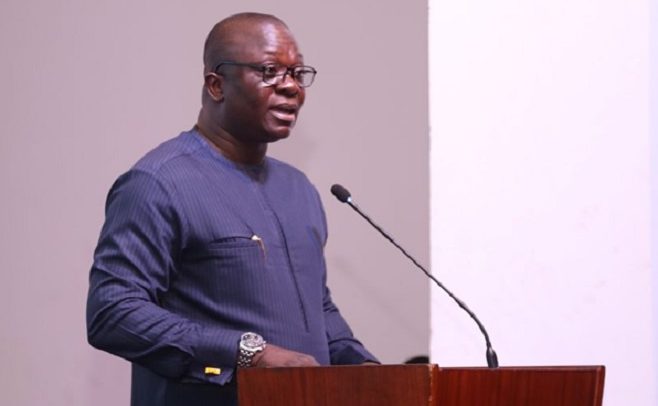Bryan Acheampong
GHANA is set to reach national self food-sufficiency by 2028 under the second phase of government’s flagship program, Planting for Food and Jobs (PFJ 2.0), the Minster for Food and Agriculture, Bryan Acheampong, has announced.
Delivering an address at a presidential breakfast meeting in Accra yesterday in which he made a presentation on achievements of the first phase of the project, the minister intimated that the PFJ 2.0 has clearly contained in its strategic document, production targets to be achieved, with the ultimate goal of reaching national food self-sufficiency by the end of the program in 2028.
Planting for Food and Jobs 2.0 is a five-year flagship program of the Akufo-Addo-led government segmented into three phases—short, medium, and long terms—with the pilot phase taking off between September and December 2023.
Described as “a transformative initiative”, by the sector minister, the program is aimed at consolidating and building on earlier efforts.
It also seeks to address specific challenges within the sector identified after an extensive review process including limited access and high cost of credit for agriculture value chain actors; barriers to entry into agribusinesses, especially for young prospective farmers; poor access to high-quality inputs; unstructured markets for agricultural produce; and the drudgery of unmechanized agriculture.
“The overall goal of the PFJ 2.0 program is to transform and modernize agriculture in Ghana through the development of initially eleven selected agricultural value chains with active private-sector participation.
Specifically, the program is designed to ensure food availability, reduce food inflation, promote import substitution, exports, create jobs, and ensure food security and resilience,” the minister iterated.
He also highlighted some four key factors essential for the overall success of the program namely, the active participation of the private sector in the value chains – from input distribution through production, processing, and marketing; financing of value chain activities by banks and other financial institutions; increasing investment in supporting agriculture infrastructure and technology; and refocusing partners in agriculture on the task ahead.
“This repurposing”, he underscored, “is necessary to achieve the targets that the country has set for itself.”
On repurposing, Mr. Acheampong, stressed on the need for actors in the agriculture value chain to “intentionally target the goal line,” saying “if we don’t know the goal line, the objective, and the target, how can we achieve anything, and what are we repurposing for?”
“This is why we have taken our time to redesign the PFJ, understanding the requirements: land requirements, irrigation requirements, cash requirements, manpower requirements, export requirements, etc.,” he added. “It is these requirements that we want to share with you so that you can repurpose, refocus, and redesign your projects and efforts to help Ghana achieve its goals,” the minister noted.
By Nii Adjei Mensahfio


